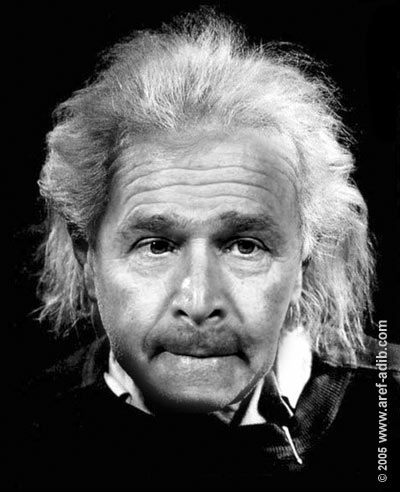Sometimes it isn’t relative. Sometimes it is very specific…
In a lovely new book, entitled The Canon, New York Times science writer Natalie Angier warns of the growing gap between knowledge of science and the real world in America.
One of Angier’s interviewees, Andrew Knoll, a professor of natural history at Harvard’s earth and planetary sciences department, suggests that ‘the average American adult today knows less about biology than the average 10-year-old living in the Amazon, or the average American of 200 years ago’.
Quoted in The Guardian, this week, she suggested, that was a political question.
‘Here in the US we have had the last seven years of this administration which has made everything about the two-cultures divide seem worse.’ But it is not just that. ‘Newspapers are getting rid of all their science pages; they are jettisoning all their science staff. The feeling is people don’t want to read it.’
The implications of all of this, along with the resultant general scientific illiteracy, are possibly catastrophic, says Angier. 42% of all Americans in a recent survey listed by Angier, said they believed that humans had been on Earth since the initial beginnings of time.
‘A geophysicist friend suggests we are at a critical crossroads just like the start of the Renaissance,’ Angier says, ‘where you couldn’t just leave reading and writing to the kings and priests anymore. Ordinary people have to keep up. In the world we live in, the new economy, you have to become scientifically literate or you will fall quickly from view.’
The truth is that we are no longer a print-driven culture, but rather one that is now driven by television and video. Thus, while Angier’s revelations of the deep levels of scientific ignorance are deeply disturbing, the solution may be something a bit more radical: video literacy.
The risk we run of obviating scientific thinking, scientific education and scientific knowledge from the general public is that we revert to fear, darkness, ignorance and a kind of ‘witchcraft’. As the world becomes more and more science driven and the general population becomes less and less scientifically illiterate, we may find ourselves in a cul-de-sac of fear, ignorance and a world that has passed us by. (Angier’s book is a best seller in China).
On the other hand, it would take a miracle to reverse the general non-reading trend in American culture. 80% of American families bought one book or less in 2006.
The answer, I think, is that thinking people, intelligent people, (people like Angier, for example), have to become video literate, seize control of the ‘means of production’ (ie, get yourself a cameras and fcp) and begin creating content that is both intelligent and thoughtful, but in video instead of text.
Writing books is great, but in doing so you are largely preaching to the converted. If you want to really ‘educate the masses’ you don’t do it in text. You have to do it in video.
Television and video can have the depth that print has… it’s only a function of who decides to make it.

4 Comments
SomatiK March 02, 2010
hello, spring is cooming! good post there, tnx for https://www.rosenblumtv.com
Pingback: links for 2007-07-02 by andydickinson.net
Peter Ralph July 02, 2007
40% of folks in the US believe Saddam Hussein planned 9/11. Not enough TV?
! July 01, 2007
here’s a suggestion: paste a map of the solar system on paris hilton’s bare behind and problem solved.
news orgs in the US will be clamoring for an exclusive photo of Heranus (the new planet which will replace the recently decertified Pluto).